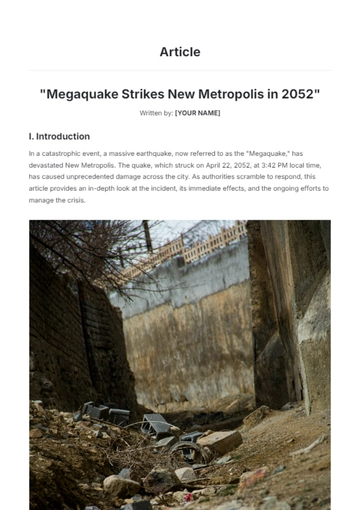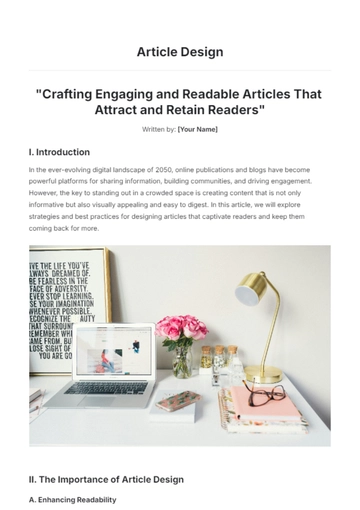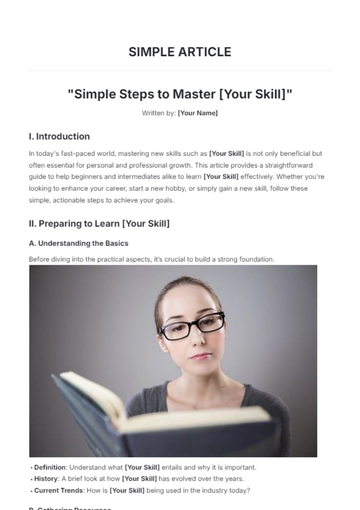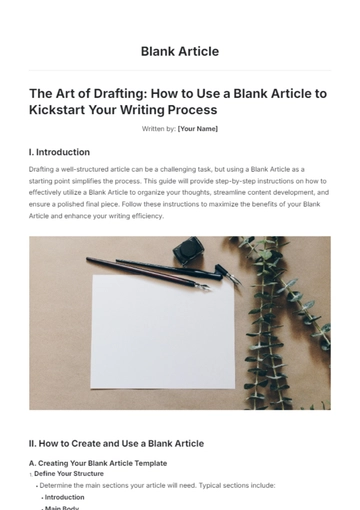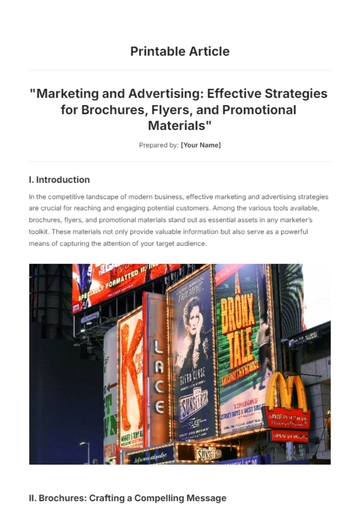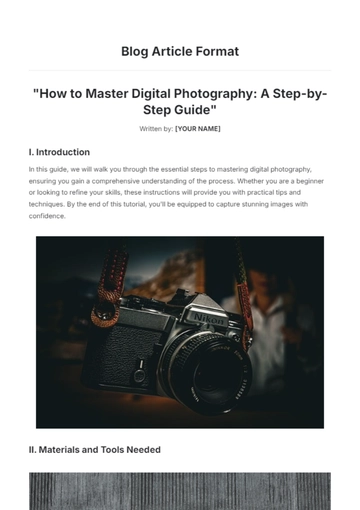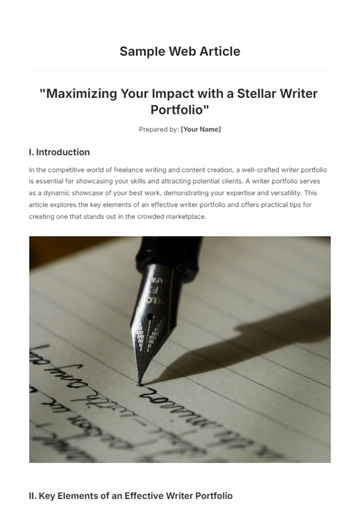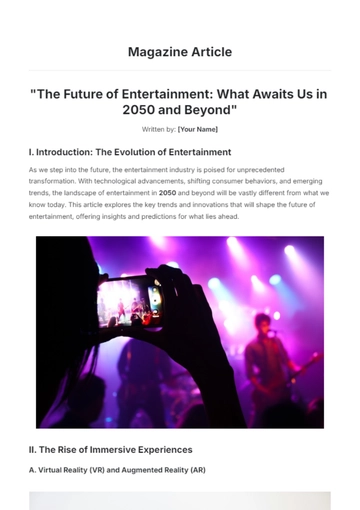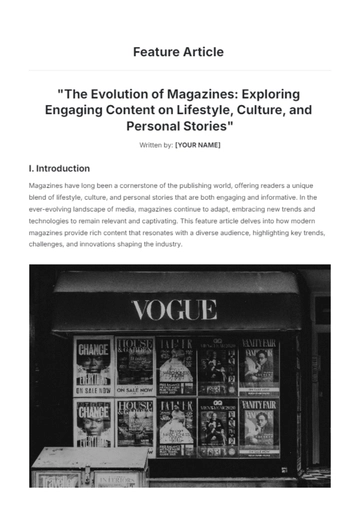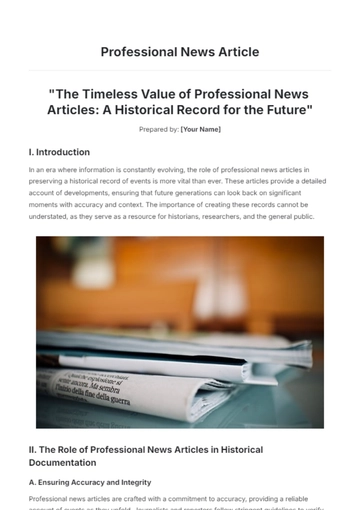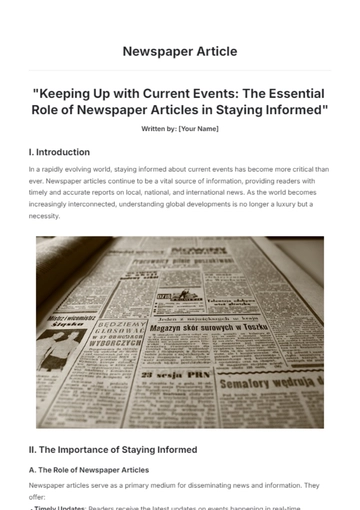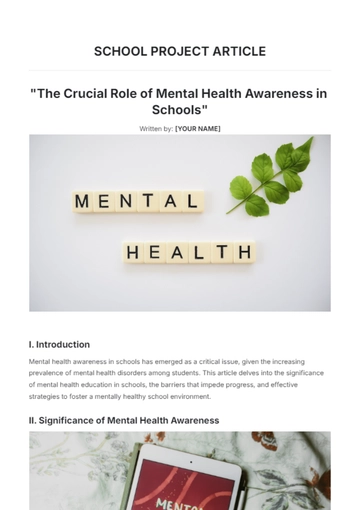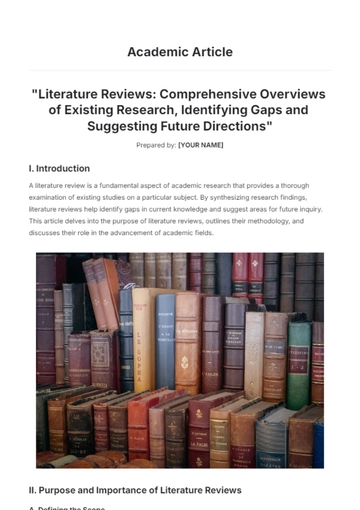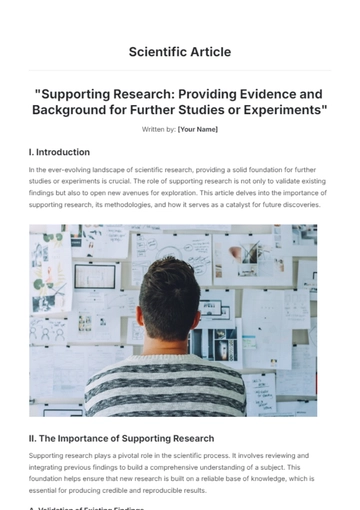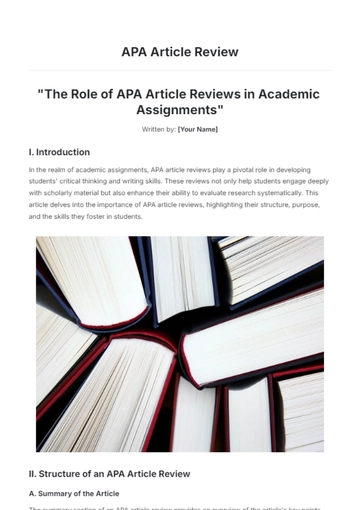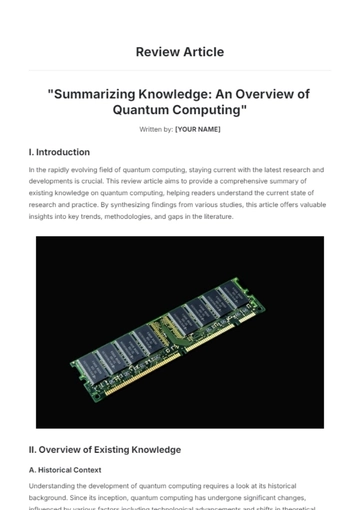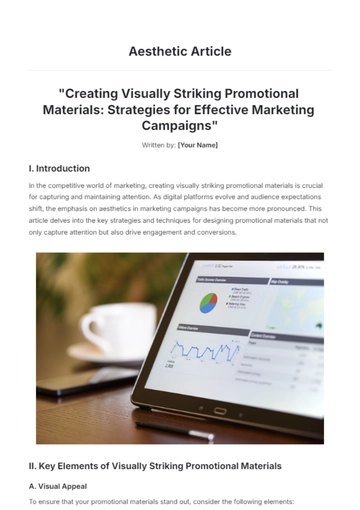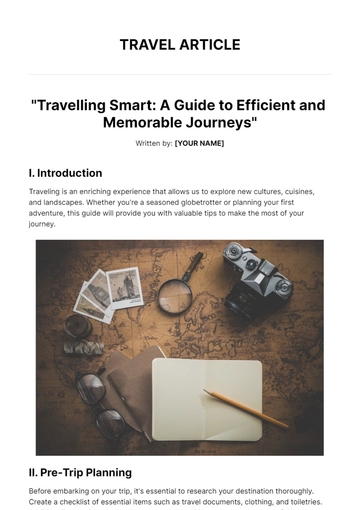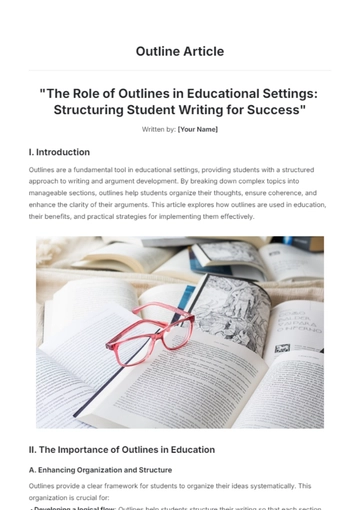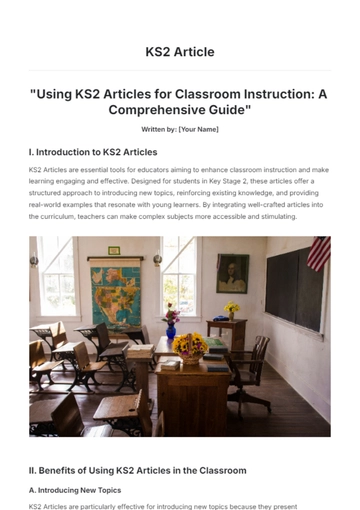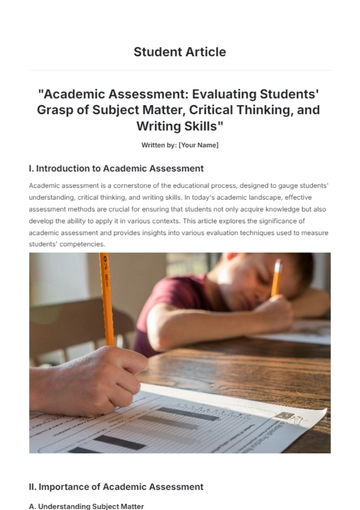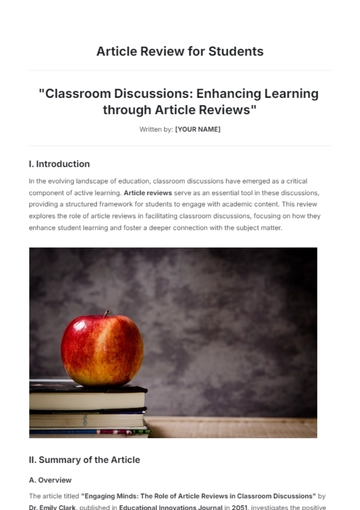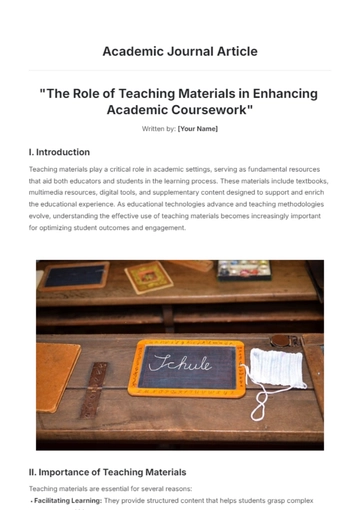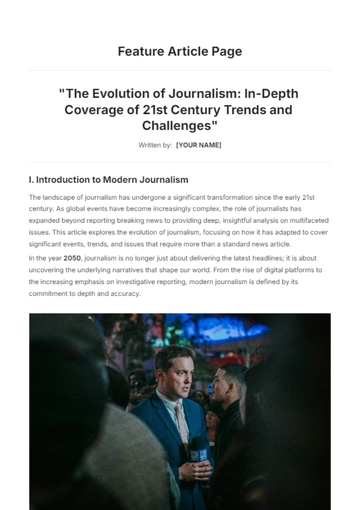Free Dialectical Journal Article
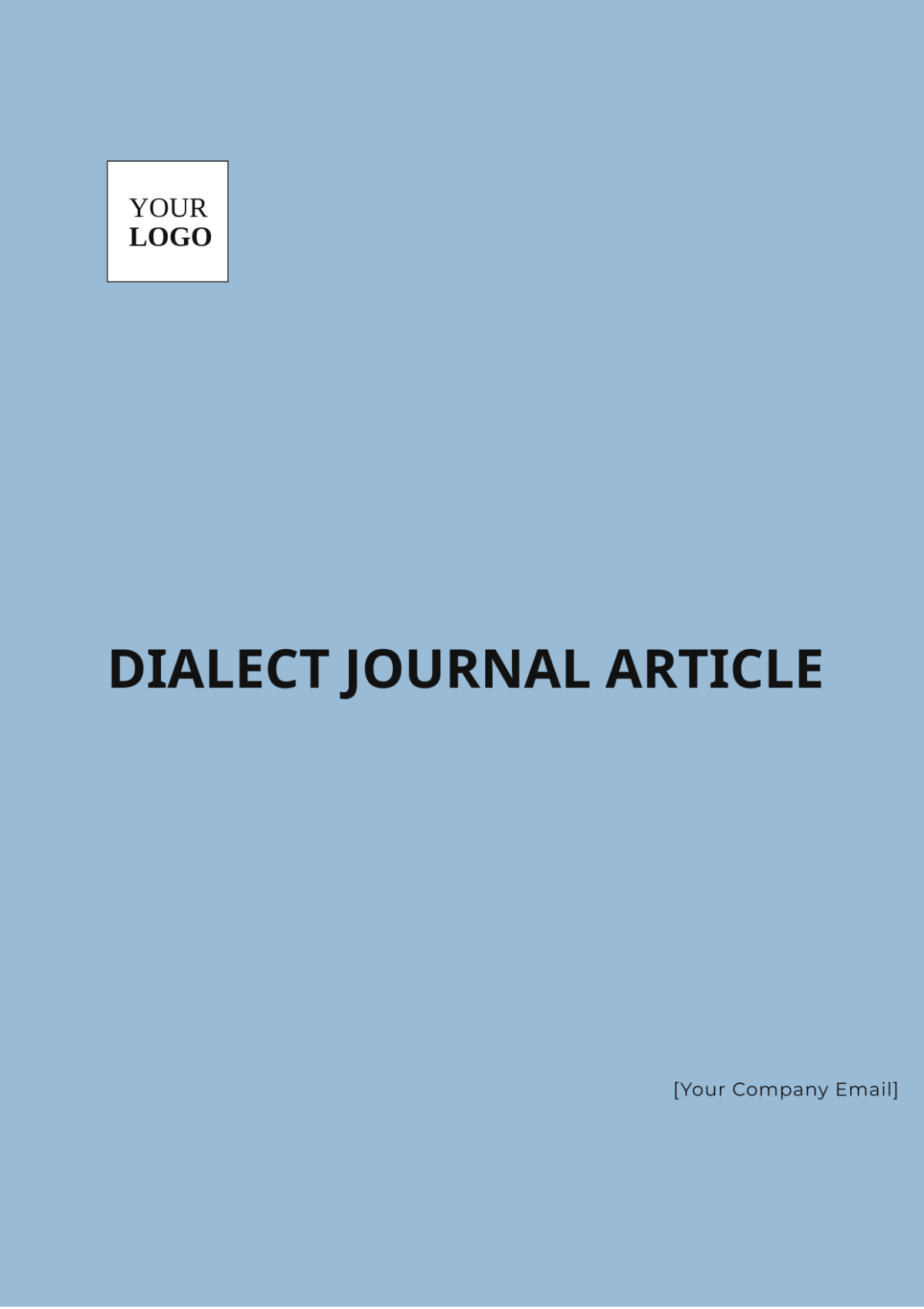
Title: Exploring the Dialectical Journal Method: Enhancing Critical Thinking and Analytical Skills
Prepared by: [Your Name]
Date: [Date]
I. Introduction
The dialectical journal method is a reflective and analytical tool designed to enhance engagement with texts by encouraging a deeper exploration of their meaning. This method involves documenting specific passages from a text alongside personal reflections, questions, and critiques, which together foster a nuanced understanding of the material. This article aims to explore how dialectical journals can enhance critical thinking and detailed analysis. It will be structured into the following sections: Textual Excerpts, Response/Reaction, Analysis, Connections, and Conclusion.
II. Textual Excerpts
Textual excerpts are the core elements of a dialectical journal. These selected passages serve as the basis for further reflection and analysis. For instance:
“It is not our abilities that show what we truly are... it is our choices.” - J.K. Rowling, Harry Potter and the Chamber of Secrets.
“The only way to deal with an unfree world is to become so absolutely free that your very existence is an act of rebellion.” - Albert Camus.
“The universe is made of stories, not atoms.” - Muriel Rukeyser.
“All that is gold does not glitter, not all those who wander are lost.” - J.R.R. Tolkien, The Lord of the Rings.
These passages are selected for their thematic depth and relevance, setting the stage for deeper inquiry and interpretation.
III. Response/Reaction
The response or reaction section captures immediate personal reflections and responses to the textual excerpts. This is where readers express their initial thoughts, feelings, and interpretations:
Reading Rowling’s assertion that choices define us rather than inherent abilities immediately prompts me to reflect on personal experiences. I recall moments in my own life where the decisions I made—rather than any natural talent—shaped my path and identity. This quote reinforces the idea that personal growth is largely a result of the choices we make.
Camus’ assertion about achieving freedom through rebellion strikes a chord in today’s climate. It feels like a call to resist complacency in the face of injustice. This quote brings to mind recent social movements where individuals have taken bold stances against systemic oppression, embodying Camus’ idea of freedom through defiance.
Rukeyser’s assertion that “The universe is made of stories, not atoms” highlights the power of narrative. This reminds me of how stories shape our understanding of reality and connect us to shared human experiences, suggesting that the essence of existence is deeply rooted in the stories we tell.
Tolkien’s line about gold and wandering speaks to the idea that value and purpose are not always immediately visible. This resonates with personal experiences of finding meaning and worth in unexpected places and journeys, reinforcing the notion that true value often lies beyond initial appearances.
IV. Analysis
The analysis section involves a deeper examination of the textual excerpts, considering their meanings, literary techniques, and broader implications:
Rowling’s focus on “choices” aligns with existentialist thought, which posits that individuals create their essence through their actions. In the context of Harry Potter, this idea is presented in a way that is accessible to younger readers, making it a powerful lesson in personal responsibility and moral growth.
Camus’ notion of freedom through rebellion reflects existentialist themes of authentic existence. His use of absolutes emphasizes the radical nature of true freedom, which requires a fundamental shift away from passive acceptance to active resistance. This perspective challenges readers to critically assess their own roles in societal structures and consider the extent of their personal freedom.
Rukeyser’s claim that the universe is composed of stories rather than atoms highlights the significance of narrative in human experience. This perspective suggests that our understanding of the world is shaped more by the stories we tell than by objective facts, underscoring the importance of narrative in shaping reality and meaning.
Tolkien’s poetic observation that not everything that glitters is gold and that not all wanderers are lost speaks to the theme of hidden value. This reflects the idea that true worth is often found through exploration and that conventional measures of success and value are not always accurate indicators of personal fulfillment or truth.
V. Connections
Drawing connections between the text, personal experience, and broader societal constructs enriches the dialectical journal. This contextualization enhances relational thinking:
Rowling’s emphasis on choices connects with developmental psychology principles, particularly the concept of agency and moral development. Educational programs that focus on character education often echo this idea, highlighting the importance of decision-making in shaping personal identity and growth.
Camus’ call for active rebellion can be linked to contemporary social movements advocating for civil rights and social justice. Historical figures like Martin Luther King Jr. and Mahatma Gandhi exemplify this idea, as their lives demonstrated a commitment to challenging systemic injustice and advocating for freedom through courageous action.
Rukeyser’s perspective on stories aligns with theories in narrative psychology, which suggest that personal and collective identities are shaped by the narratives we construct. This connection underscores the power of storytelling in shaping human experience and understanding.
Tolkien’s reflection on value and wandering resonates with philosophical and existential themes of finding meaning in the journey itself. This perspective is evident in various philosophical traditions that emphasize the importance of personal growth and discovery over material success.
VI. Conclusion
The dialectical journal method proves to be a valuable tool for engaging deeply with texts. By systematically recording and reflecting on selected excerpts, readers develop interpretative skills and connect personal insights with broader societal themes. This approach fosters a holistic understanding and promotes continuous intellectual and emotional growth, enhancing critical thinking and analytical abilities through structured reflection.
- 100% Customizable, free editor
- Access 1 Million+ Templates, photo’s & graphics
- Download or share as a template
- Click and replace photos, graphics, text, backgrounds
- Resize, crop, AI write & more
- Access advanced editor
Enhance your academic arguments with Template.net’s Dialectical Journal Article Template. This fully editable and customizable template is perfect for structuring debates and contrasting viewpoints in a scholarly format. Editable in our AI Editor Tool, you can tailor it to fit your unique writing style and the specific requirements of your target journal.
